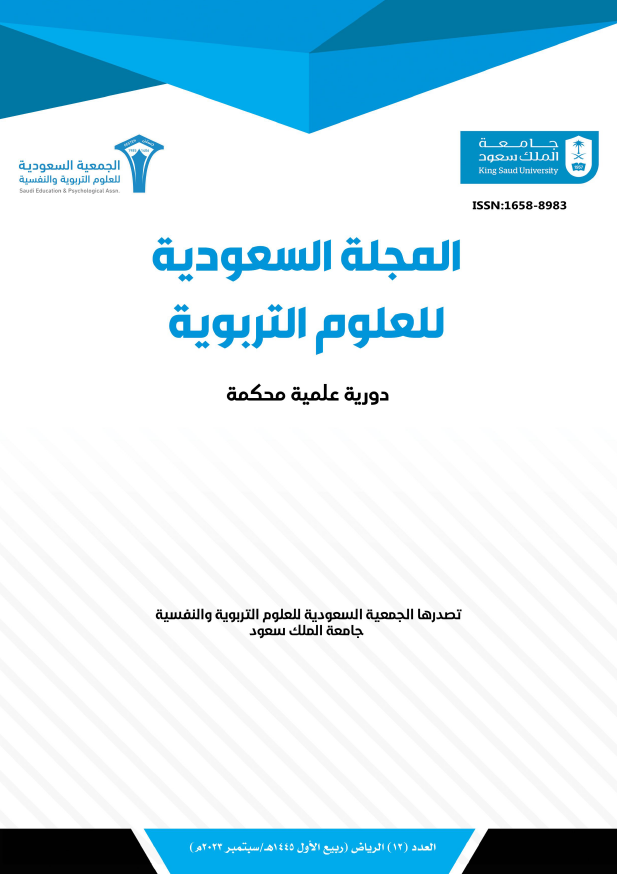The Role of Reflective Teaching in Developing Teaching Performance of Female Kindergarten Teachers in terms of Interaction and Guidance
Keywords:
Reflective Teaching, Kindergarten Teachers, classroom management, directing behaviorAbstract
The study aimed to identify the role of reflective teaching in developing teaching performance of female kindergarten teachers in terms of interaction and guidance, and to found out that there are differences in the sample responses according to the two variables of (job experience, the number of children in the classroom). The study adopted the descriptive survey approach. The two researchers prepared a questionnaire that was applied to (190) female kindergarten teachers in private Kindergartens in Riyadh. The study showed that the sample agreed that reflective teaching has a significant role in developing teaching performance in terms of classroom management and positive interaction, which were represented in the following practices: Reconsidering the way they interact with children and improving the way they deal with them. And in terms of guidance and behavior control, which were represented in the following practices: Observing unacceptable behavior of children and reviewing the extent of their patience and calmness while dealing with children's behavior. It was also found that there were no statistically significant differences between the responses of the study sample due to the difference in job experience and the number of children in the classroom. Accordingly, the study made a




